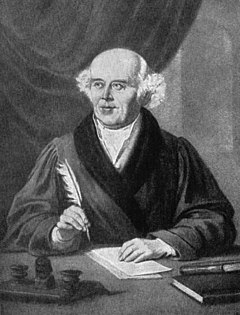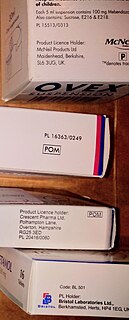This article has multiple issues. Please help improve it or discuss these issues on the talk page . (Learn how and when to remove these template messages) (Learn how and when to remove this template message)
|
Because of the uncertain nature of various alternative therapies and the wide variety of claims different practitioners make, alternative medicine has been a source of vigorous debate, even over the definition of "alternative medicine". [1] [2] Dietary supplements, their ingredients, safety, and claims, are a continual source of controversy. [3] In some cases, political issues, mainstream medicine and alternative medicine all collide, such as in cases where synthetic drugs are legal but the herbal sources of the same active chemical are banned. [4]
Contents
- United States
- Texas
- New Zealand
- Australia
- Denmark
- Alternative therapists
- Switzerland
- United Kingdom
- See also
- References
In other cases, controversy over mainstream medicine causes questions about the nature of a treatment, such as water fluoridation. [5] Alternative medicine and mainstream medicine debates can also spill over into freedom of religion discussions, such as the right to decline lifesaving treatment for one's children because of religious beliefs. [6] Government regulators continue to attempt to find a regulatory balance. [7]
Jurisdiction differs concerning which branches of alternative medicine are legal, which are regulated, and which (if any) are provided by a government-controlled health service or reimbursed by a private health medical insurance company. The United Nations Committee on Economic, Social and Cultural Rights – article 34 (Specific legal obligations) of the General Comment No. 14 (2000) on The right to the highest attainable standard of health – states that
Furthermore, obligations to respect include a State's obligation to refrain from prohibiting or impeding traditional preventive care, healing practices and medicines, from marketing unsafe drugs and from applying coercive medical treatments, unless on an exceptional basis for the treatment of mental illness or the prevention and control of communicable diseases.
— [8]
Specific implementations of this article are left to member states. Two governments, acting under the laws of their respective countries, maintain websites for public information making a distinction between "alternative medicine" and "complementary medicine". In North America, the National Institutes of Health (NIH) (a part of the U.S. Department of Health and Human Services) states:
- "...people often use the words “alternative” and “complementary” interchangeably, but the two terms refer to different concepts: 'Complementary' generally refers to using a non-mainstream approach together with conventional medicine. 'Alternative' refers to using a non-mainstream approach in place of conventional medicine. True alternative medicine is not common. Most people use non-mainstream approaches along with conventional treatments. And the boundaries between complementary and conventional medicine overlap and change with time. For example, guided imagery and massage, both once considered complementary or alternative, are used regularly in some hospitals to help with pain management."
In the British Isles, the National Health Service (England)'s NHS Choices (owned by the Department of Health) states:
- "Although 'complementary and alternative' is often used as a single category, it can be useful to make a distinction between complementary and alternative medicine. This distinction is about two different ways of using these treatments". "Treatments are sometimes used to provide an experience that is pleasant in itself. This can include use alongside conventional treatments, to help a patient cope with a health condition. When used this way the treatment is not intended as an alternative to conventional treatment. The US National Center for Complementary and Integrative Health (NCCIH) says that use of treatments in this way can be called 'complementary medicine'. Treatments are sometimes used instead of conventional medicine, with the intention of treating or curing a health condition. The NCCIH says that use of treatments in this way can be called 'alternative medicine'. There can be overlap between these two categories. For example, aromatherapy may sometimes be used as a complementary treatment, and in other circumstances is used as an alternative treatment. A number of complementary and alternative treatments are typically used with the intention of treating or curing a health condition. Examples include: homeopathy, acupuncture, osteopathy, chiropractic, herbalism."









